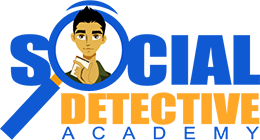Philosophy and Curriculums
Philosophy
This generation of youth faces more challenges than ever before. Social and emotional demands and expectations, peer pressure and cultural complexities are many. Exposure to the vast amount of information and perspectives in this technological age has great benefits yet puts demands on youth like never before. These challenges and demands have the potential of creating a great deal of problems for our kids if not paired with the skills to cope both socially and emotionally. But with proper skills we have a potential to create a generation of adults who have tremendous capacity to manage and make sense of the increasing complexity the modern world presents. By developing better social and emotional intelligence we can help kids be healthier, happier and better functioning members of society. We here at SDA are deeply committed to this goal.
Get more information, a free consultation, and free sample lesson!
Core Skill Building and Social Remedy programs
The standard core skill building program takes place over a 30 week period. While it is recommended that the full core program be taught to students, modifications can be made to fit specific timelines and student needs. In addition to the core program there are a number of supplemental programs to augment the core teachings. There is the social remedy program which targets specific circumstances kids may have trouble with. Some of the issues dealt with in this supplemental program are: making friends, deepening friendships, keeping friends, finding common interests, starting conversations, bullying, cooperation versus competition, conflict resolution, sportsmanship, using humor, complementing, joining in groups, managing group interactions, managing less structured social time, being flexible, turn taking, managing frustration etc…. The social remedy curriculum can be a stand alone teaching or integrated into the core skill building curriculum.
The core skill building and the social remedy programs are both done in the context of teaching kids to become their own social detectives. Through the use of building skills to be a social detective and solving social mysteries students are presented the material in fun and practical ways. They are learning to build their skills so they can be a social detective like the main character in the book “Diary of a Social Detective”.
The High School Program
The program for older kids differs from the program for younger students in that there is less of an emphasis on being a detective. It’s more about critical thinking, and deepening the knowledge of intricacies of social and emotional world, which in turn give students more social equity, personal power and success in life. This serves as a great motivator for these older students.
There is also a strong focus on helping teens have a better understanding of what is going on with them during this important period of change in their lives. We discuss the changes which are going on in the teen brain and how they affect behavior, choices, feelings, sense of identity and one’s overall outlook in the world. A more objective understanding of developmental shifts can help teens derive a better understanding of themselves which facilitates both social and emotional understanding and mastery. We also educate students on key aspects of social relating in order to help them navigate the social world better. Then we dive deeper into emotional exploration and developmentally appropriate mindfulness practices to help them cultivate higher levels of emotional intelligence and ability to self regulate and self reflect.
Mindfulness and Emotional Intelligence Training
Finally we have a module that focuses specifically on mindfulness practices and body awareness. This program helps students to cultivate focus, concentration, clarity, nervous system regulation and kinesthetic awareness and sensitivity. It also helps students to identify, understand and manage emotions. Here we teach and practice these techniques together at a developmentally appropriate level. We also engage in reflection on personal experiences, gains and obstacles that might arise in the student’s’ life.
